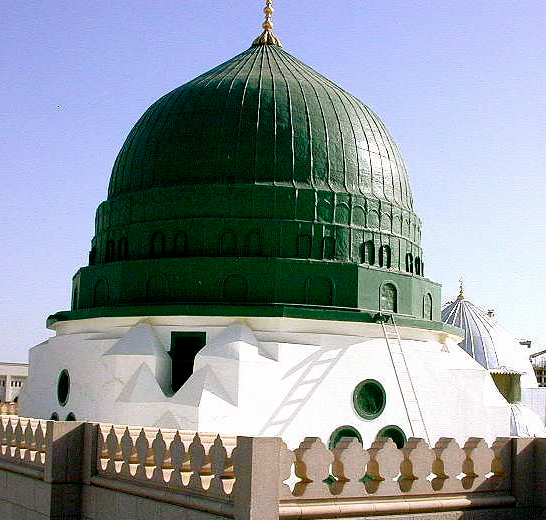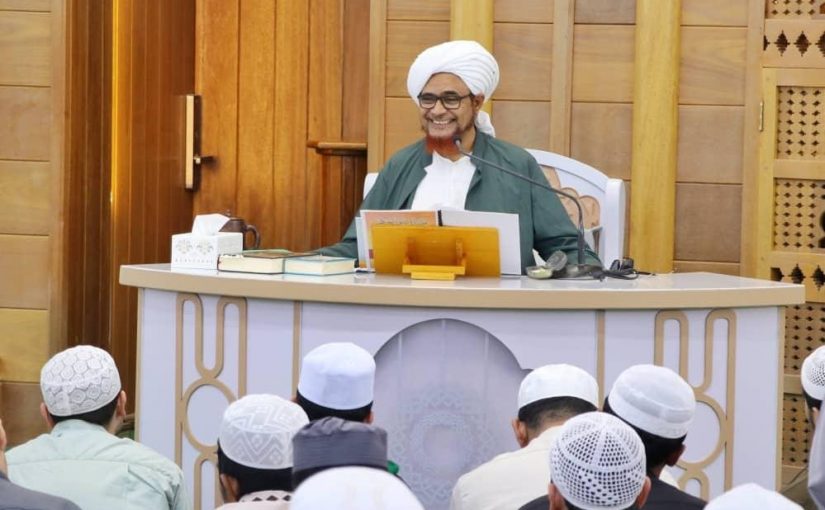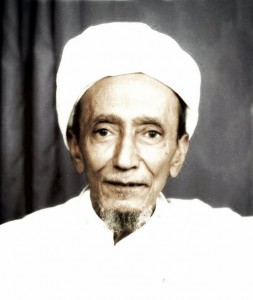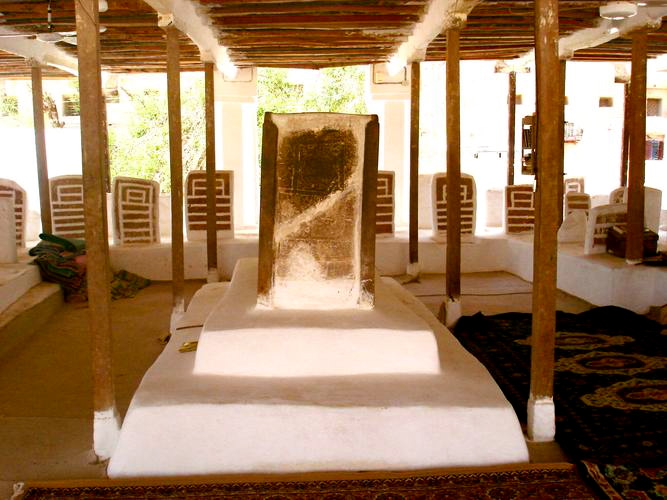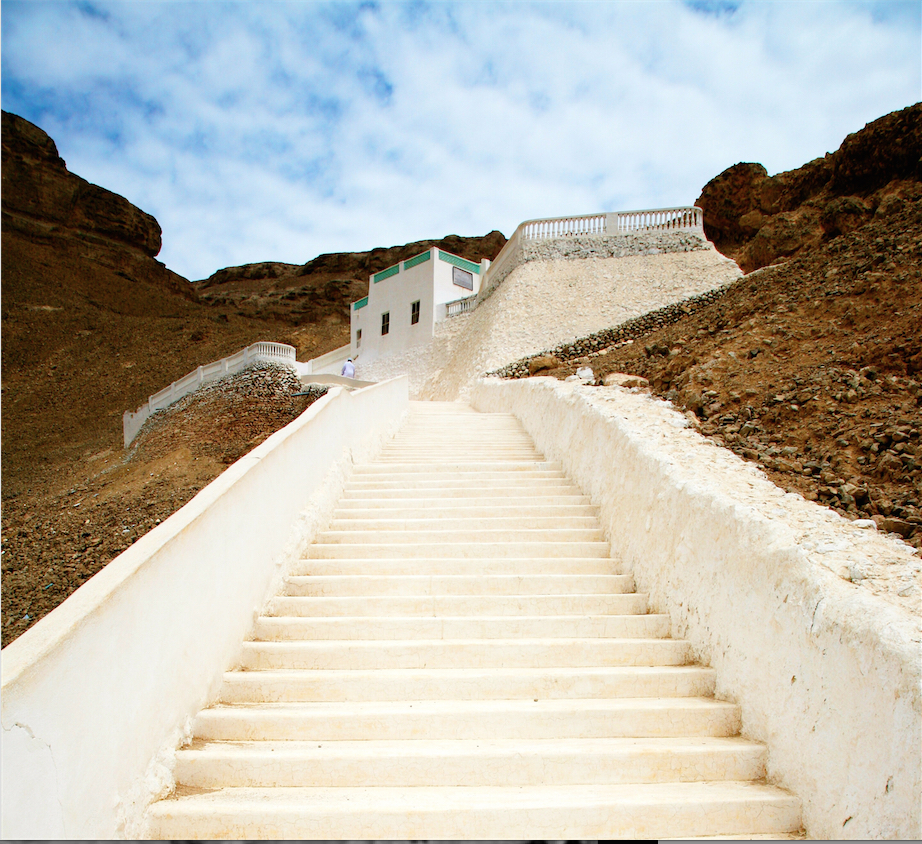The Messenger of Allah ﷺ informed us that there are no days in which righteous actions are more beloved to Allah than the first ten days of Dhu’l-Hijjah.1 For that reason some scholars have ruled that these days are better than the final ten days of Ramadan, although the nights of Ramadan are superior to these nights. Allah Himself swears by “the Ten Nights” in Surat al-Fajr, which is sufficient evidence of their greatness. Continue reading The First Ten Days of Dhu’l-Hijjah
Author: admin
Salawat with Allah’s Beautiful Names: Ya Nafi’ (the One Who Benefits)
The Prophet said ﷺ: “All creatures are Allah’s dependants, and the most beloved to Allah are those most beneficial to His dependants.”
Sayyidi Habib Umar bin Hafiz (may Allah protect him and benefit us by him) teaches us to ask Allah by His name, the One Who benefits (al-Nafi’) and by His Prophet ﷺ who is the source of all benefit, that He makes us among those who benefit the creation the most. Continue reading Salawat with Allah’s Beautiful Names: Ya Nafi’ (the One Who Benefits)
The White Days of Dhu’l-Qa`dah
We are now approaching the “White Days” of the blessed month of Dhu’l-Qa`dah. The “White Days” are the days that follow nights in which the moon is full, namely the 13th, 14th and 15th days of each lunar month. The Messenger of Allah ﷺ encouraged his Companions to fast three days in every month and to fast these days specifically. The reward for fasting these days in Dhu’l-Qa`dah will also be multiplied because it is a sacred month.
The Messenger of Allah said ﷺ: “If you fast three days in the month then fast the thirteenth, fourteenth and fifteenth” (Narrated by al-Tirmidhi and al-Nasa’i).
Please check the moon sighting in your locality to be sure that your fast coincides with the “White Days.”
Salawat with Allah’s Beautiful Names: Ya Mani’ (the Preventer)
This prayer is taken from Sayyidi Habib Umar bin Hafiz’s collection of prayers using Allah’s beautiful names in which he calls upon Allah by His beautiful names and then asks Him to bestow prayers upon His Beloved by those names. Finally, he asks Allah for a portion of those attributes which belong to Allah and which He has bestowed upon His Messenger ﷺ. Continue reading Salawat with Allah’s Beautiful Names: Ya Mani’ (the Preventer)
Insights into Purification: When is it recommended to perform Wudu?
There are many times and situations in which it is recommended to perform wudu. Here are some of them:
1. When you wish to read or carry the books of tafsir and hadith, out of veneration for the speech of Allah and His Messenger ﷺ . Allah says: If someone venerates the things Allah has made sacred, this is truly a sign of piety in the heart (22:32). When Imam Malik was asked to narrate hadith, he would perform ghusl, put on perfume and put on his best clothes before doing so. This shows you the secret of adab (correct etiquette) which is a means of elevation. When Muslims neglected these etiquettes they lost out on great good. They lost the spirit of their acts of worship while the outward form remained. One of the knowers of Allah said: “The religion is veneration for the religion.” The degree to which you benefit from any act of worship is according to the degree of your veneration for that act of worship. Continue reading Insights into Purification: When is it recommended to perform Wudu?
Habib “Sa’d” al-‘Aydarus
His Lineage
He is al-Habib “Sa`d” Muhammad bin `Alawi bin `Umar bin `Aydarus bin `Alawi bin `Abdullah bin `Alawi bin `Abdullah bin al-Hasan bin `Alawi bin `Abdullah bin Ahmad bin Shaykh Husayn bin Imam `Abdullah al-`Aydarus bin Shaykh Abu Bakr al-Sakran bin Shaykh `Abd al-Rahman al-Saqqaf bin Shaykh Muhammad Mawla al-Dawilah, bin `Ali Mawla al-Darak, bin `Alawi al-Ghayur, bin al-Faqih al-Muqaddam Muhammad, bin `Ali, bin Muhammad Sahib Mirbat, Continue reading Habib “Sa’d” al-‘Aydarus
Imam ‘Abdullah bin ‘Alawi al-Haddad
His Lineage
He is al-Imam al-Habib ‘Abdullah bin ‘Alawi bin Muhammad bin Ahmad bin ‘Abdullah bin Muhammad bin ‘Alawi bin Ahmad “al-Haddad” bin Abu Bakr bin Ahmad bin Muhammad bin ‘Abdullah bin Ahmad bin ‘Abd al-Rahman bin ‘Alawi ‘Amm al-Faqih (uncle of al-Faqih al-Muqaddam), bin Muhammad Sahib Mirbat, bin ‘Ali Khali’ Qasam, bin ‘Alawi, bin Muhammad Sahib al-Sawma’ah, bin ‘Alawi, bin ‘Ubaydullah, bin al-Imam al-Muhajir il-Allah Ahmad, bin ‘Isa, bin Muhammad al-Naqib, bin `Ali al-‘Uraydi, bin Ja’far al-Sadiq, bin Muhammad al-Baqir, bin ‘Ali Zayn al-‘Abidin, bin Husayn al-Sibt, bin ‘Ali bin Abi Talib and Fatimah al-Zahra’, the daughter of our Master Muhammad, the Seal of the Prophets ﷺ. Continue reading Imam ‘Abdullah bin ‘Alawi al-Haddad
Salat of Imam al-Haddad
The following prayer upon the Prophet ﷺ was composed by Imam al-Haddad
اللَّهُمَّ صَلِّ على سَيِّدِنا و مَوْلانا مُحَمَّدٍ الَّذي أُمِرْنا على لِسَانِهِ بِحِفْظِ الحُدُودِ و الوَفَاءِ بِالعُهُودِ و الرِّضا بِالمَوْجُودِ و الصَّبْرِ على المَفْقُودِ
O Allah, bestow prayers upon our Master Muhammad, on whose tongue we have been commanded to maintain the boundaries, to honour our trusts, to be content with what we possess and to patiently bear any losses we suffer.
Insights into Purification: Maintaining and Renewing Your Wudu
Wudu is the weapon of the believer and is a means of protection. It is recommended to be constantly in a state of wudu, and this is one of the etiquettes of the seeker on the path to Allah. If harm comes to you when you are not in a state of wudu, then only blame yourself. Continue reading Insights into Purification: Maintaining and Renewing Your Wudu
Traditional Methods of Raising Children
These are some of the methods of raising children used by our pious predecessors of the Ba `Alawi way, compiled by the grandson of the late Habib Muhammad al-Haddar (may Allah have mercy on him and be well-pleased with him), Sayyid Muhammad Abdullah Muhammad al-Haddar, may Allah preserve and protect him:
- Breastfeeding mothers would repeatedly recite Ayat al-Kursi, Surat al-Falaq and Surat al-Nas over their babies.


